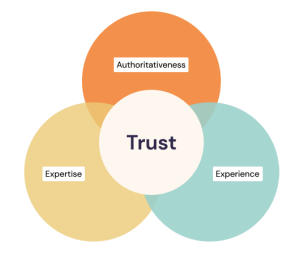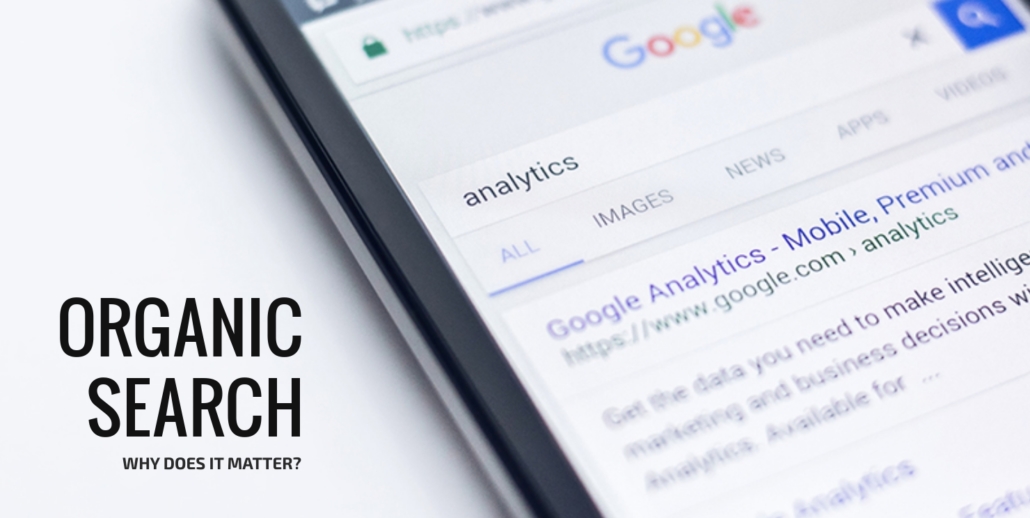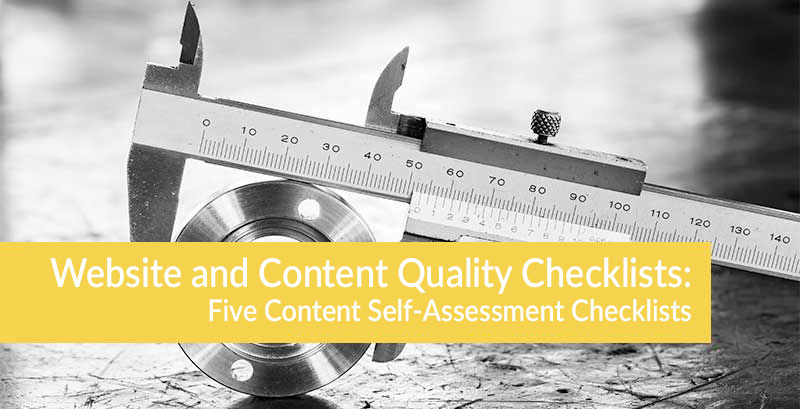Catch up with the December 2022 Google Search Quality Rater Guidelines Update
E-E-A-T stands for experience, expertise, authoritativeness, and trust.
Google wants to make sure your content is created by someone with a:
…degree of experience, such as with the actual use of a product, having actually visited a place or communicating what a person experienced.
There are some situations where really what you value you most is content produced by someone who has first-hand, life experience on the topic at hand.
Experience matters to Google. But Google says Trust is critical.
The most important member at the center of the E-E-A-T family is Trust.
This update to Google’s famous E-A-T acronym is one of many included in its December 2022 update to the search quality rater guidelines. These guidelines are used by Google’s search quality raters (real humans) to evaluate your website and page content.
In this blog I highlight the key changes to the search quality rater guidelines that you need to know about. These changes do impact your content, SEO, and PPC strategies.
E-E-A-T and What It Means for You
Google describes E-E-A-T as:
- Experience: consider the extent to which the content creator has the necessary first-hand or life experience for the topic. For example, which would you trust a product review from someone has personally used the product or a “review” by someone who has not?
- Expertise: consider the extent to which the content creator has the necessary knowledge or skill for the topic. Different topics require different levels and types of expertise to be trustworthy.
For example, which would you trust: supplement advice from a doctor or from an athlete who doesn’t have medical or scientific education.
- Authoritativeness: consider the extent to which the content creator or the website is known as a go-to source for the topic. While most topics do not have one official, Authoritative website or content creator, when they do, that website or content creator is often among the most reliable and trustworthy sources. For example, the official government page for getting a passport is the unique, official, and authoritative source for passport renewal. Or a local business profile page on social media may be the authoritative and trusted source for what is on sale now.
- Trust: consider the extent to which the page is accurate, honest, safe, and reliable. Trust is the most important member of the E-E-A-T family because untrustworthy pages have low E-E-A-T no matter how Experienced, Expert, or Authoritative they may seem.For example, a fake health product is untrustworthy, even if the content creator is a highly experienced and expert scammer who is considered the go-to for fake health news.

E-E-A-T has huge implications for your Page Quality rating.
Search quality raters assess ask these questions about your website and web pages:
- What the website or content creators say about themselves
Google wants to know is the website or content creator a trustworthy source based on this information on your About Us or social media profile page. - What others say about the website or content creators
Google wants to know if there is independent, reliable evidence that the website or content creator is experienced, has expertise, is authoritative, or is otherwise considered trustworthy. Google asks if there is independent, reliable evidence that the website creator is untrustworthy? - What is visible on the page, including the Main Content and sections such as reviews and comments
Google wants to make sure there is evidence of the experience and expertise level of the person creating the content and behind the website. Google asks what evidence can you gather from examining the Main Content or testing the page out?
What You Need to Do About E-E-A-T
- Review and update your About Us and profile pages to ensure they contain clear information about you, your company, your expertise, and your experience.
- Make sure all YMYL content contains clear scientific and up-to-date scientific references.
- Include an author bio on every single blog post, in every whitepaper, ebook, video, image, etc.
- Include honest reviews from customers and other industry experts on every page.
- Make sure your online store is secure (HTTPS) and has easily accessible and reliable customer service.
- Remember this important statement about Trust from Google:
Important: The website or content creator may not be a trustworthy source if there is a clear conflict of interest. For example, product reviews by people who own the product and share their experiences can be very valuable and trustworthy. However, “reviews” by product manufacturers (“Our product is great!”) or “reviews” from an influencer who is paid to promote the product are not as trustworthy due to conflict of interest.
Why Page and Content Quality Matters
Page and content quality matter because both you and Google have a vested interest in providing the most helpful, reliable, original, and well-researched content possible.
In section 3.2, the search quality rater guidelines say:
For most pages, the quality of the MC can be determined by the amount of effort, originality, and talent or skill that went into the creation of the content. For informational pages and pages on YMYL topics, accuracy and consistency with well established expert consensus is important.
Google asks its search quality raters to think about:
- Effort: the extent to which a human being actively worked to create satisfying content.
- Originality: the extent to which the content offers unique, original content that is not available on other websites. If other websites have the similar content, consider whether the page is the original source.
- Talent or Skill: the extent to which the content is created with enough talent and skill to provide a satisfying experience for people who visit the page.
- Accuracy: for informational pages, consider the extent to which the content is factually accurate. For pages on YMYL topics, consider the extent to which the content is accurate and consistent with well-established expert consensus.
The two standouts for me are effort and originality.
I see this as a clear statement to content creators and website owners to be very careful about using artificial intelligence (AI) tools to create content. And especially for YMYL brands, it is imperative that your content is backed by proven and trusted science.
Communicating effort, originality, talent or skill, and accuracy in your content and throughout your website is critical.
How To Assess Your Content and Page Quality
- What is the purpose of the page? Google says If the page has a harmful purpose, or if it is designed to deceive people about its true purpose or who is responsible for the content, it should be rated Lowest.
Your to do: make sure the purpose of every page is clear.
- Could this page be considered harmful, untrustworthy, or spammy? Google says Websites or pages that are harmful to people or society, untrustworthy, or spammy as described in these guidelines should be rated Lowest.
Your to do: create original content that clearly communicates effort, talent or skill, and accuracy. Do not copy content. Do not include any statements that cannot be verified.
- Is this a YMYL page? Google says search quality raters must consider the topic of the page and the extent to which that topic is YMYL. Pages on YMYL topics have higher standards than pages on non-YMYL topics.
Your to do: YMYL brands and websites must clearly communicate E-E-A-T, originality, effort, talent or skill, and accuracy.
E-E-A-T, Page Quality, and Content Quality Review Questions
Ask these questions about your website and social media profile pages:
- What is the purpose of my website?
- Does the content on my website align with the website purpose?
- Does the content on my pages educate, inform, and provide a beneficial purpose?
- Is my content original?
- How much effort and talent/skill went into researching and writing my content?
- As a YMYL brand, is the content on my website 100% accurate?
- Can people trust my website?
- Is it clear why people should trust my website?
- Would I recommend my website and content to a family member?
- Is there clear information about my experience level and that of my content creators?
You cannot cut corners with E-E-A-T, page quality, or content quality.
Google is too smart for this. Your customers are too smart for this.
Contact us with your questions about E-E-A-T, YMYL, and how you can ensure your website is meeting Google’s expectations for page and content quality.



